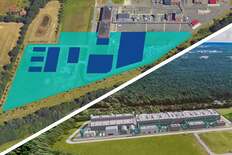- Germany grants over €619M for hydrogen projects, including a 300-MW electrolyser in Lingen and a 100-MW plant in Rostock.
- The federal government provides 70% of the funding, while state governments contribute 30%.
- RWE plans to invest a medium three-digit million-euro amount in the projects.
- The first 100-MW electrolyser in Lingen is set to be commissioned in 2025.

Funding and Projects Overview
The German government and federal state governments have granted over €619 million to support RWE’s hydrogen projects. This funding will facilitate the construction of a 300-MW electrolyser in Lingen, Lower Saxony, as part of the GET H2 Nukleus project, and a hydrogen facility in Gronau-Epe, North Rhine-Westphalia. Additionally, a consortium, including RWE, received funding for a 100-MW electrolyser plant at the port of Rostock, Mecklenburg-Western Pomerania, under the HyTechHafen Rostock project.
Funding Breakdown
The federal government is covering 70% of the total funding for each project, while the states of Lower Saxony, North Rhine-Westphalia, and Mecklenburg-Western Pomerania are contributing the remaining 30% for their respective projects. RWE plans to invest a medium three-digit million-euro amount in these initiatives.
Project Timelines
At the Lingen site, RWE aims to install hydrogen generating capacities of 300 megawatts in 100-megawatt increments by 2027, with the first 100-MW electrolyser expected to be operational by 2025. The green hydrogen produced here will help industrial companies reduce their carbon emissions.
Storage and Infrastructure
In Gronau-Epe, two caverns will be used for hydrogen storage at RWE Gas Storage West’s planned facility, which aims to balance fluctuations in hydrogen generation from wind and solar energy. The first hydrogen is expected to be stored by 2026. The 100-MW electrolyser at Rostock port will produce green hydrogen from 2027, supplying local consumers and feeding into the developing Germany-wide hydrogen core grid.
EU Recognition
These projects were recognized as Important Projects of Common European Interest (IPCEI) by the EU Commission in February, enabling national bodies to grant the necessary funding.

